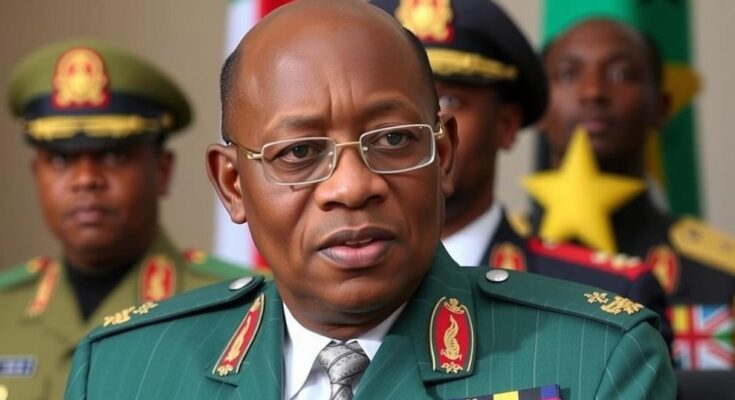President Salva Kiir has dismissed several high-ranking officials within South Sudan’s military and economic sectors, citing discontent in military ranks. The changes include appointing a new army chief, police inspector general, and reinstating a former central bank governor. These shifts occur amid ongoing economic struggles and societal violence, reflecting the nation’s unstable governance dynamics and the lengthy postponement of national elections until December 2026.
In a significant reshuffle of South Sudan’s leadership, President Salva Kiir has dismissed key figures in the country’s military and economic sectors, including the Chief of Defence Forces, the Police Chief, and the Governor of the Central Bank. The state-owned broadcaster SSBC announced these removals late on Monday without providing specific reasons. Paul Nang Majok has been appointed as the new army chief, taking over from General Santino Wol, amid reports of unrest within the military ranks, primarily attributed to unpaid salaries for approximately one year.
The recent changes mirror a historical trend of abrupt personnel shifts within the government. Notably, in recent months, violent incidents have occurred, such as the heavy gunfire in Juba linked to police operations against former intelligence officials. In an earlier reshuffle in October, the President also replaced the head of the National Security Service. The newly appointed officials include Johnny Ohisa Damian, who has resumed the role of Central Bank Governor, and Abraham Peter Manyuat, who now serves as the Inspector General of Police.
South Sudan’s governance has faced these frequent leadership changes amid ongoing economic challenges since civil unrest began in 2013. Although the nation has enjoyed a formal peace since 2018, underlying tensions continue to prompt violence among communities. Compounded by a postponed national election until December 2026, these developments highlight the fragile nature of the state’s political landscape and raise concerns about future stability.
The recent leadership shake-up in South Sudan arises from a backdrop of ongoing instability and economic turmoil. Following a civil war that erupted in 2013, the nation has struggled with significant socioeconomic challenges. The peace agreement signed in 2018 ended a prolonged conflict, yet sporadic violence remains pervasive. Frequent changes in governmental positions reflect an unstable political environment that complicates governance and hampers reform efforts. The postponement of national elections until 2026 symbolizes the challenges in sustaining lasting peace and rebuilding a functional state.
In summary, President Salva Kiir’s recent sacking of military and police leaders, along with the Central Bank Governor reflects a deeper crisis within South Sudan’s governance. These personnel changes are indicative of both internal military discontent and the broader socio-economic instability facing the nation, which has endured prolonged conflict. As South Sudan grapples with these challenges, the looming electoral postponement highlights the precariousness of its peace process and the urgent need for effective leadership to foster stability.
Original Source: www.arabnews.com




